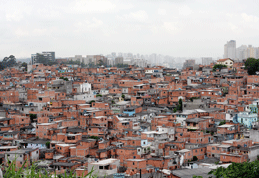[2 April 2009] --

The ambitious program aims to simultaneously boost job creation and expand housing.
President Luiz Inácio Lula da Silva, with Casa Civil chief Dila Rousseff, unveiled the new programme, called “My House, My Life,” on March 25.
As part of the plan, one million new homes will be built and offered to families at subsidised rates. The subsidy level will vary according to income level.
The lowest income families, where the need is most acute, will receive the largest subsidy. For example, a family in this category will pay just 50 reais a month over ten years for a house worth 30,000 reais. Almost 50 percent of the funding will focus on this level, which is the segment of society that was never reached by the formal housing sector and forced to take shelter in slums.
Lower and middle income families will receive subsidised loans for housing up to $45,000 to $59,000 total value, depending on the region.
To sweeten the deal, the government is also establishing a guarantee fund for participating families who lose their income and cannot pay their mortgage. Property title will be handed over preferentially to a female representative of the family.
The new housing projects will be provided by private developers in partnership with municipalities, state governments and stakeholders, or independently. State governments and municipalities may also donate land.
Housing projects that wish to participate in the new program will be required to install solar energy panels as well as rainwater collection and reutilization systems. In addition, the land to be used cannot be located in a risk area and sewage must be available.
Funding for the program will come from the government’s budget (75 percent), the federally backed FGTS retirement fund (22 percent) and the National Development Bank (3 percent).
The new programme will run parallel with the Brazilian government’s unprecedented effort to upgrade existing slums as part of its massive Growth Acceleration Programme (PAC), established in 2007. The new plan also lays the groundwork for Brazil’s first-ever national framework for land regularization, which is expected to be a tremendous benefit for the country’s slum upgrading projects.
Social housing activists and urban specialists have welcomed the initiative. They have pledged however, to continue their mobilization efforts to ensure that local authorities guarantee that adequate land and services are available for the plan.
Among the many challenges of the new plan is to avoid errors of the past, when lower income housing projects were provided without taking infrastructure, services or job opportunities into consideration, eventually transforming them into areas similar to slums.




